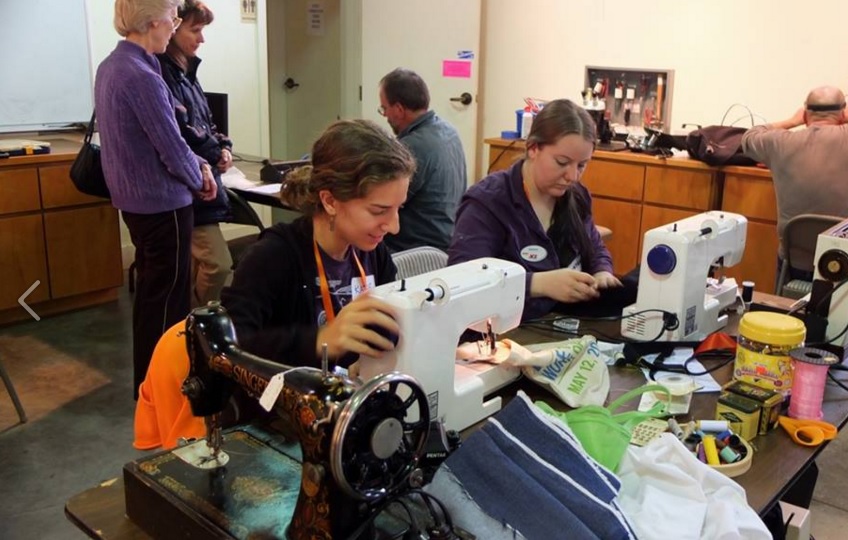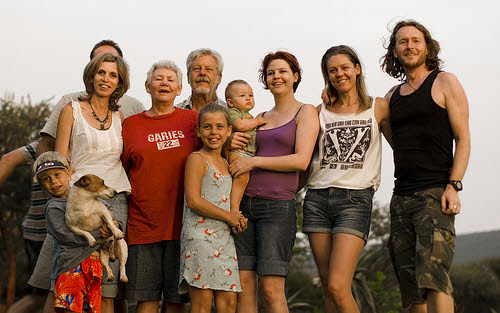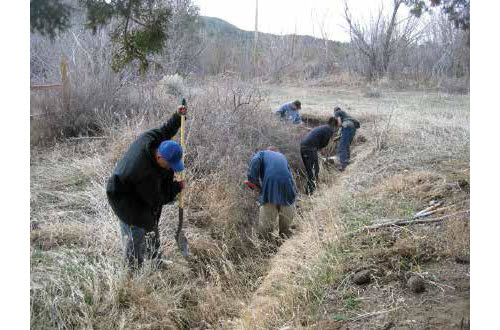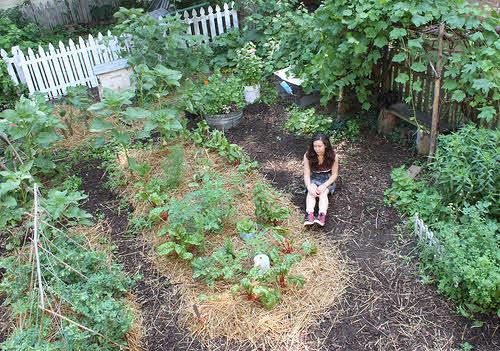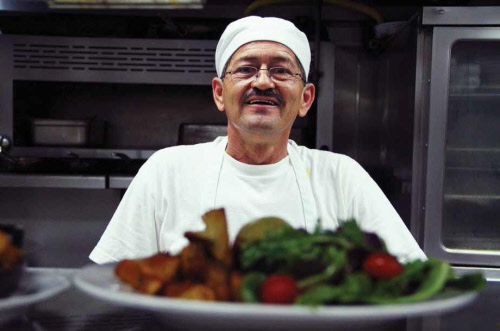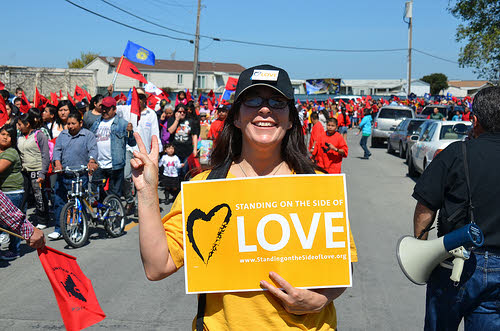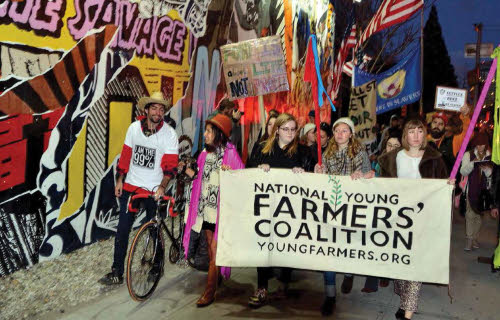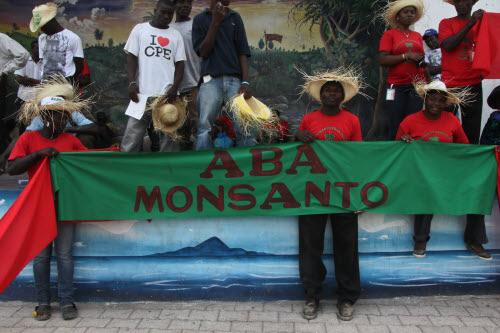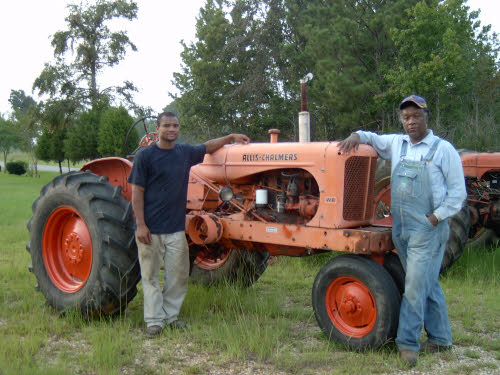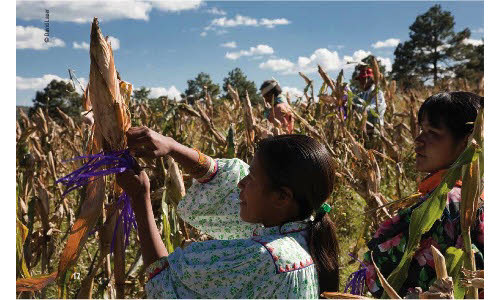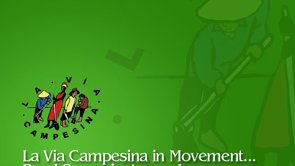The Repair Café concept brings together neighbors to repair broken, non-working, or otherwise damaged items instead of tossing them.
Tag: Community
5 Ways a Large Family Can Reduce Its Carbon Footprint
A large family inevitably has a large carbon footprint. But you can make choices that reduce the climate impact of everyday activities.
Mardi Gras in New Orleans: Keeping the Commons Common
By Beverly Bell March 4, 2014 Today, as on every Mardi Gras Day, New Orleans is in the midst of full-on mayhem. Depending on when on Fat Tuesday you are [ … ]
Harvesting Justice 19: “The Revolution is Going to be Fought With The Hoe”- Agriculture and Environment in New Mexico
Miguel Santistevan and his partner Margarita García are helping youth reclaim knowledge about traditions behind lands and waters. Sol Feliz Farm, Miguel’s grandfather’s house east of Taos, is an acre of spiral gardens, rock gardens, and straight rows. The farm’s Agriculture Implementation Research and Education (AIRE) project is capturing the imagination of an impassioned group of youth in northern New Mexico.
Top Five US Cities for Urban Homesteading
Where do urban homesteaders live? Where are they gathering? Using the Gallup Wellbeing Index as a jumping off point, here are the top five cities for happy homesteading.
Harvesting Justice 15: From Field to Table – Rights for Workers in the Food Supply Chain
The Food Chain Workers Alliance has a goal of nothing less than full rights and fair wages for the 20 million workers who grow, harvest, process, pack, ship, cook, serve, and sell food in the US.
Harvesting Justice 13: We Have a Dream – Farm Workers Organize for Justice
For decades, farmworkers – the more than one million men and women who work in fields and orchards around the country – have been leading a struggle for justice in our food system. They have been building awareness and mobilizing the public, successfully securing some rights, higher wages, and better working conditions.
Harvesting Justice 12: Weeding Corporate Power out of Agricultural Policies – Communities Mobilize for Food and Farm Justice
From the school cafeteria to rural tomato farms, and all the way to pickets at the White House, people are challenging the ways in which government programs benefit big agribusiness to the detriment of small- and mid-sized farmers.
Harvesting Justice 10: Small Farms Fight Back – Food and Community Self-Governance
Heather Retberg stood on the steps of the Blue Hill, Maine town hall surrounded by 200 people. “We are farmers,” she told the crowd, “who are supported by our friends and our neighbors who know us and trust us, and want to ensure that they maintain access to their chosen food supply.”
Harvesting Justice 9: Farmers and Consumers vs. Monsanto – David Meets Goliath
Via Campesina, the world’s largest confederation of farmers with member organizations in 70 countries, has called Monsanto one of the “principal enemies of peasant sustainable agriculture and food sovereignty for all peoples.” See how peasant farmers, and the activists who support them, are challenging the agribusiness giant’s incursions into developing world farming.
Harvesting Justice #6: The Consumer's Got to Change the System – Farmer Ben Burkett on Racisim & Corporate Control of Agriculture
Other Worlds’ Tory Field and Beverly Bell discuss issues of sustainability and agriculture with Mississippi farmer and member of Via Campesina’s food sovereignty commission Ben Burkett.
Harvesting Justice #4: Women’s Work – Gender and the Global Food System
Women produce 60 to 80 percent of all food, both as subsistence farmers and as agricultural wage laborers. They are the primary providers for the majority of the world’s 925 million hungry people, obtaining food, collecting firewood and water, and cooking. And yet they have less access to land and the resources necessary to grow on it than their male counterparts. Inequitable distribution of land, labor, and resources leaves farming women triply burdened by work: in the fields, in the home, and in society.
Harvesting Justice #2: Think Globally, Eat Locally
Food sovereignty is rooted in the daily work of every small farmer, rancher, fisherperson, landless farm worker, and everyone else involved in local food production. Yet no matter what they produce, their ability to survive is affected by international market forces. The movement, therefore, also includes community, national, and international activists working for just trade and economic systems.

